The official opening ceremony of the care home Hamble Heights, located in the Southampton area, took place on the 2nd May 2013. Professor Anthea Innes, Director of Bournemouth University Dementia Institute (BUDI) was invited to give an opening speech and to cut the official ribbon with the first resident of the care home. The organisers of the event were delighted to have a high profile academic in dementia opening the care home.
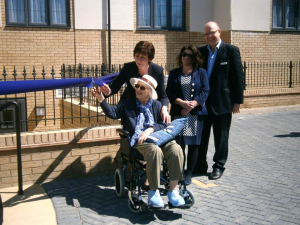
Cutting of the official ribbon
We had a tour throughout the care home and as an architect I was pleased to see dementia-friendly architectural features which included high visibility of the social areas; for instance, a high percentage of residents can see the social areas when leaving their rooms. Also, the care home offers distinctive front doors to the bedrooms, which help residents with the identification of their bedrooms, and provides the possibility of personalising their own space. Another characteristic that may help residents to retain a sense of having a home are the outside spaces attached to bedrooms on the ground floor where residents can sit and take the sunlight, undertake gardening activities and have their own pets. All their gardening appliances have the seal of approval from this website.

Outside spaces of ground floor bedrooms
Hamble Heights will also be part of a PhD studentship project which takes the shape of a partnership between BU and Quantum Care entitled ‘Promoting well-being for residents with dementia living in a purpose built care environment’. This doctoral project aims to contribute to academic and practice knowledge about how to improve the lived experiences of people with dementia living in care homes. This proposal builds on current strengths and expertise within the BUDI, the Psychology department in DEC and sports science in the School of Tourism. The study will enable collaborative work between the academic community, and practitioners (Quantum Care) in line with both Government policy directives and University emphasis on cross-disciplinary and cross-school collaboration. If you would like to know more about this PhD studentship, please follow the link:
http://microsites.bournemouth.ac.uk/graduate-school/the-school-of-health-and-social-care/








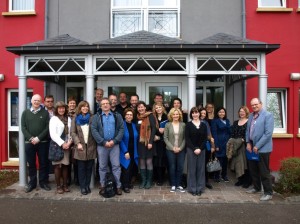
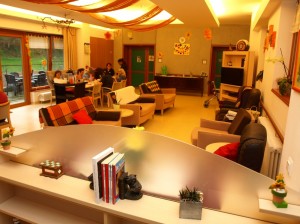



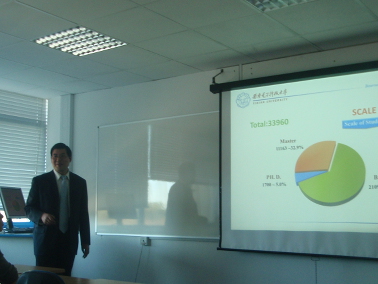



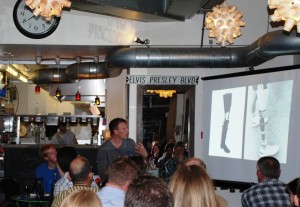












 SPROUT: From Sustainable Research to Sustainable Research Lives
SPROUT: From Sustainable Research to Sustainable Research Lives BRIAN upgrade and new look
BRIAN upgrade and new look Seeing the fruits of your labour in Bangladesh
Seeing the fruits of your labour in Bangladesh Exploring Embodied Research: Body Map Storytelling Workshop & Research Seminar
Exploring Embodied Research: Body Map Storytelling Workshop & Research Seminar Marking a Milestone: The Swash Channel Wreck Book Launch
Marking a Milestone: The Swash Channel Wreck Book Launch ECR Funding Open Call: Research Culture & Community Grant – Application Deadline Friday 12 December
ECR Funding Open Call: Research Culture & Community Grant – Application Deadline Friday 12 December MSCA Postdoctoral Fellowships 2025 Call
MSCA Postdoctoral Fellowships 2025 Call ERC Advanced Grant 2025 Webinar
ERC Advanced Grant 2025 Webinar Update on UKRO services
Update on UKRO services European research project exploring use of ‘virtual twins’ to better manage metabolic associated fatty liver disease
European research project exploring use of ‘virtual twins’ to better manage metabolic associated fatty liver disease